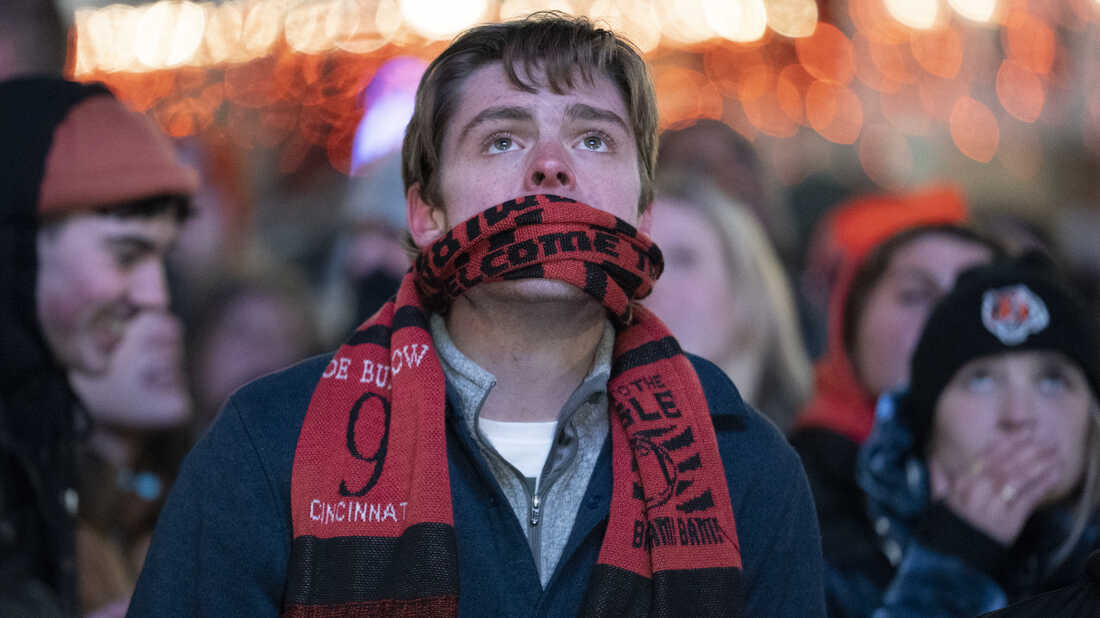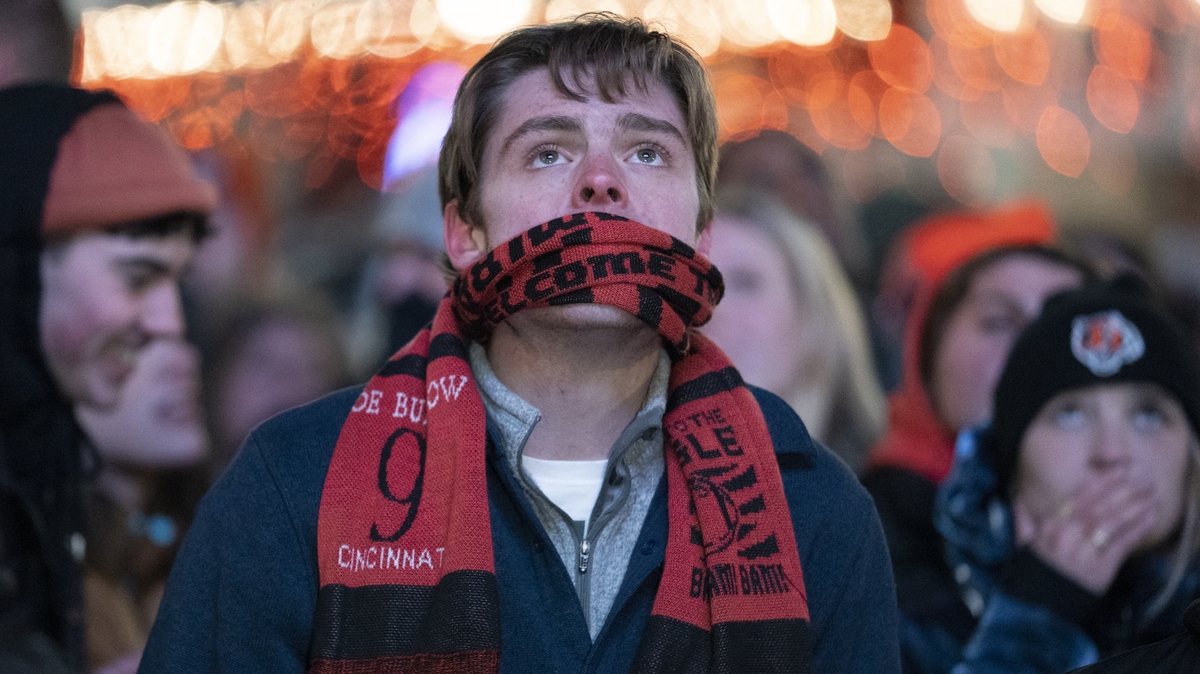
Cincinnati Bengals fans react to the team's loss against the Los Angeles Rams at end of NFL football's Super Bowl 56 Sunday, Feb. 13, 2022, at The Banks in Cincinnati. Jeff Dean/AP hide caption

Cincinnati Bengals fans react to the team's loss against the Los Angeles Rams at end of NFL football's Super Bowl 56 Sunday, Feb. 13, 2022, at The Banks in Cincinnati.
Jeff Dean/APFans of the Cincinnati Bengals may be licking their wounds after Sunday's Super Bowl loss, but every sports fan can relate to the pain that follows a big game not going their way. And while it's normal to be upset, those feelings of disappointment can occasionally turn into grief and even depression.
Dr. Eric Zillmer, a professor of Neuropsychology at Drexel University, explains how the pandemic and the brief pause on professional sports helped him understand just how strongly we rely on those games.
And Greg Miller, a licensed therapist, discusses ways to deal with grief from your team's loss in a healthy way. A lesson he's learned first hand.
Email us at
This episode was produced by Jason Fuller. It was edited by Lee Hale and Fatma Tanis. Our executive producer is Cara Tallo.

 Live Radio
Live Radio